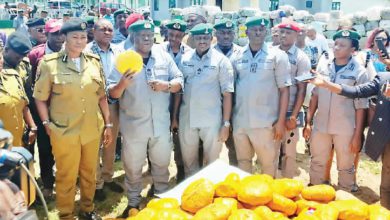
- The House of Representatives on Wednesday expressed concerns over the rising population in the Federal Capital Territory, calling for more infrastructure in Abuja’s satellite towns.
The House of Representatives on Wednesday expressed concerns over the rising population in the Federal Capital Territory, calling for more infrastructure in Abuja’s satellite towns.
The House made the demand when it unanimously adopted a motion moved by Micah Jiba titled, ‘Provision of Basic Infrastructure in Kubwa, Abuja, to Ease the Problem of Overpopulation in the Area.’
Adopting the motion, the lawmakers urged the Federal Government to review the master plan of Kubwa district and other satellite towns to cater for the current and future changes in the areas by establishing “more settlements as well as health care facilities, schools and other basic amenities for the growing number of residents around the areas.”
The House also mandated the committees on FCT Area Councils and Ancillary Matters, and Urban Development to ensure compliance with the resolution.
Jiba noted that over the years, the FCT had undergone tremendous growth and development, resulting in massive influx of people into the city.
He added that in the master plan of the FCT, Kubwa was one of the five major sub-districts designed to cater for between 150,000 to 250,000 people, organised around local businesses and employment, which were to be autonomous yet accessible to other parts of the city.
The lawmaker said Kubwa was the fastest growing satellite town in Abuja, as there was a concentration of a large number of the Federal Government workforce and businessmen residing in the town.
Jiba said, “The House is aware that due to the increasing migration of people to the district, Kubwa currently has a population of over 700,000 people as against the maximum number of 250,000 the area was originally intended to accommodate.
“There is currently an acute housing shortage and a rapid growth of satellite towns that clearly lack basic amenities and social infrastructure, which is at complete variance with the core values set out in the Abuja master plan.”



